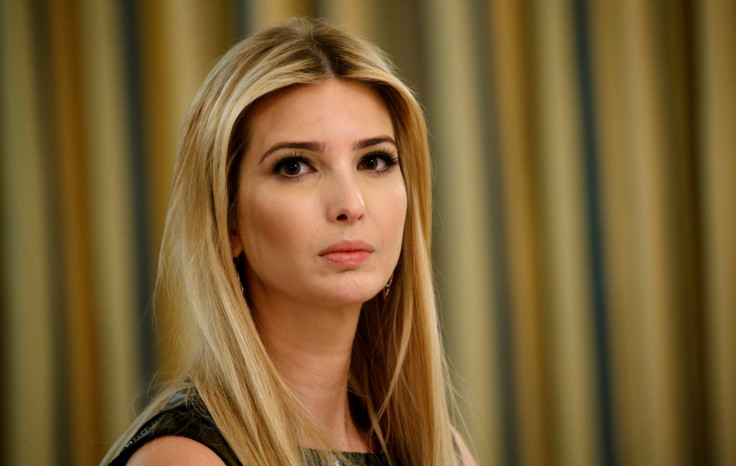How Popular Is Ivanka Trump? First Daughter's Name Is A Huge Trend In China

Ivanka Trump is so popular she could soon help dozens of Chinese companies sell makeup, nutritional supplements, wallpaper, sanitary napkins and other random products. The oldest first daughter and fashion designer is considered such a global ambassador that at least 65 companies have applied to use the name "Ivanka" as a trademark since President Donald Trump moved into the White House, the South China Morning Post reported Monday.
The Ivanka fever extends to a weight loss company that filed 10 applications to use the "Ivanka" name on its merchandise, according to information released on the website of the Trademark Office of the State Administration for Industry & Commerce. Another company, Fujian Yingjie Commodity Company, filed an application shortly after the November presidential election to use the first daughter's name for its brand of sanitary napkins.
Ivanka Trump isn't faring so well in the U.S. After high-end retailer Nordstrom dropped her line of clothing and accessories, citing declining sales, her father defended her on Twitter and urged Americans to buy her clothing. On the other hand, a recent Politico/Morning Consult poll found nearly half of voters approve of Ivanka Trump. In fact, she was more popular than her step-mother, first lady Melania Trump, who had a 47 percent approval rating compared with Ivanka Trump's 49 percent approval rating. Ivanka Trump is considered to be a close adviser to her father. She moved to Washington, D.C., to help his administration, while Melania Trump has opted to stay at the family’s luxury penthouse apartment in New York City.
The Ivanka trademark applications were being processed by the Chinese government and it is unclear whether any of them will be granted. China’s trademark laws allow domestic businesses to use foreign names or the Chinese translations of such names as trademarks, occasionally producing global headlines about the phenomenon or even lawsuits. A Chinese shoemaker, for example, was sued recently for using basketball star Michael Jordan’s image and Chinese name as a trademark for years.
© Copyright IBTimes 2024. All rights reserved.






















